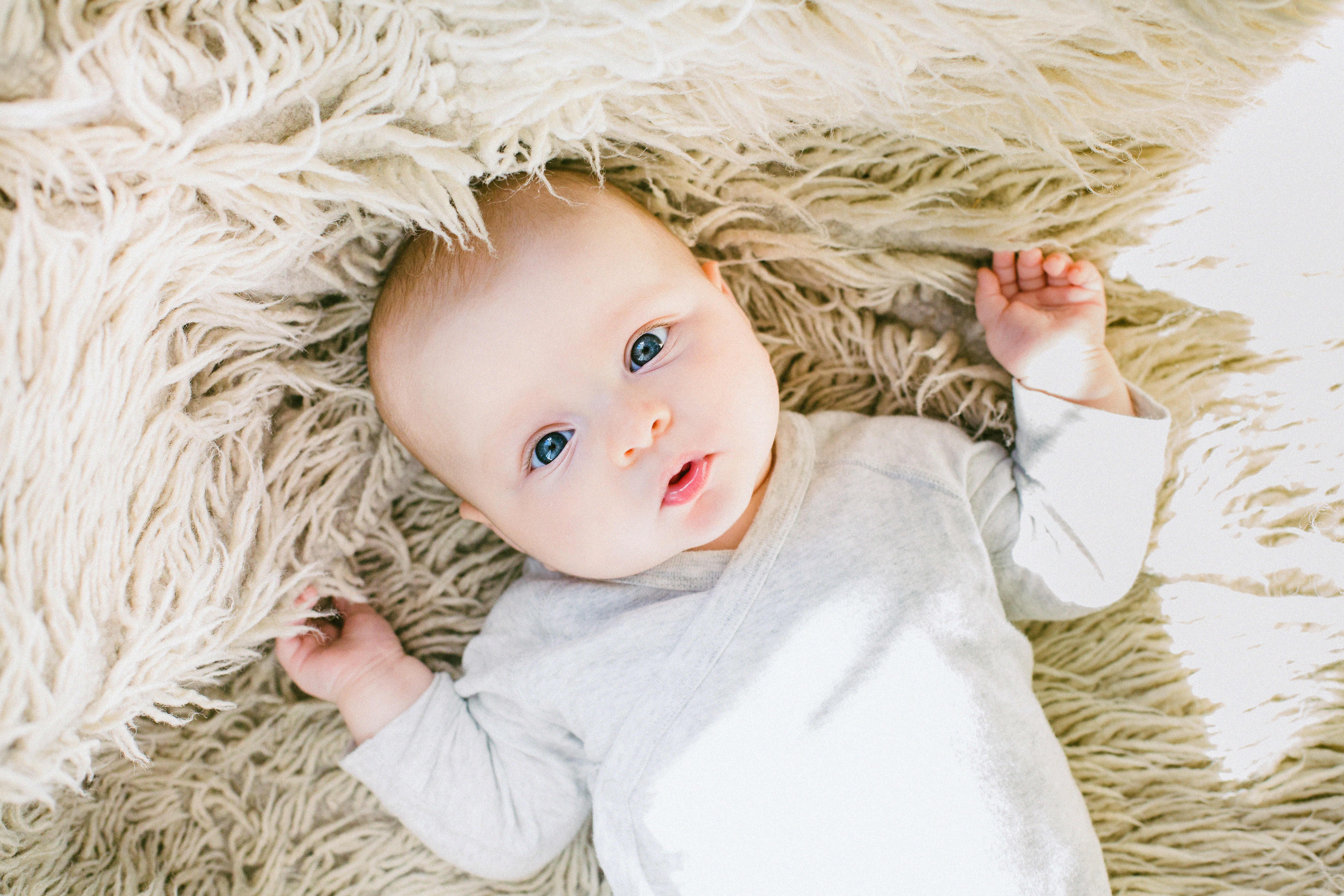Guest Blogger: Emily Arahata
Certified Pediatric Sleep Consultant | Bedtime Buttercup

If you have a newborn baby, you’ve probably already realized that he does a lot of eating and a lot of sleeping, and very little of anything else. You may have also been hit with the reality that you are at the mercy of your infant’s erratic sleep patterns for the next three months or so. Or maybe you have a 10-month-old, shoulder-deep in sleep deprivation and up every hour to tend to your child’s needs. During this fog in motherhood, you may be trying to recall the advice of published experts, while the self-proclaimed experts in your life: your mother, your grandmother, your sister-in-law, even the woman behind you in line at the grocery, freely dispense advice and solutions, suggestions, and even well-meaning criticism regarding your baby and sleep. When parents are given all this conflicting information, they may find it impossible to know which direction to take. So here are five common baby sleep myths busted:
1. Sleeping too much during the day will keep baby up at night.
Not likely, except in extreme cases. Unless your little one is sleeping all day and up all night, you probably don’t need to concern yourself with the length of their naps. Newborns especially need a ton of sleep. In fact, up until about 6 months, I don’t recommend that your little one be awake for more than about 2- 2 1/2 hours at a time. For newborns, 45 minutes to an hour is all they can really handle until they need to lay their little heads to sleep again. What keeps babies awake at night, more than anything else, is overtiredness. You might think that an exhausted baby is more likely to sack out for a full night than the one who slept all day, but it’s actually just the opposite.
2. Sleeping is a natural development and can’t be taught.
Sleeping is natural, absolutely. Everybody wakes up and falls back to sleep multiple times a night, regardless of their age. So no, you can’t teach a child to be sleepy. What can be taught, however, is the ability to fall back asleep independently. The typical “bad sleeper” of a baby isn’t less in need of sleep, or more prone to waking up. They’ve just learned to depend on outside assistance to get back to sleep when they wake up. Once your little one has figured out how to get to sleep without assistance from outside sources, they start stringing those sleep cycles together absolutely effortlessly, and that’s the secret to “sleepingthrough the night” as most parents understand it.
3. Babies will naturally dictate their own sleep schedule.
If only infant physiology was so flawless, naturally programmed to regulate a baby’s schedule! Our babies need extensive care and help in their development, and their sleep cycles are unbelievably erratic if left unregulated. If they miss their natural sleep cycle by as little as half hour, their cortisol production can increase which causes a surge in energy, and things quickly spiral out of control. So as much as I wish babies could just fall asleep when they’re tired, it simply doesn’t work that way. That’s not to say that you shouldn’t respond to their cues, but you shouldn’t rely exclusively on them either.
4. Sleep training is stressful for the baby and can affect the parent-child attachment.
No, and this is not just me talking. This is the American Academy of Pediatrics. And according to a 2016 study conducted by eight of their top researchers, behavioural intervention, (AKA Sleep Training) “provide(s) significant sleep benefits above control, yet convey(s) no adverse stress responses or long-term effects on parent-child attachment or child emotions and behaviour.” Not a whole lot of gray area there.
5. Babies are not “designed” to sleep through the night.
When a baby relies on a sleep prop to fall asleep, they will wake up between their sleep cycles, looking for someone to come in and provide her with that sleep prop. A “sleep prop” is any device or activity that your child has come to depend on in order to fall asleep. For many babies, this means nursing or drinking a bottle until they finally doze off, after which we will try to lay them down in their crib. A soother is probably the second most common sleep prop I see children using. There are various sleep props that a child can begin to rely on for sleep to come, but that is why your child wakes up in the middle of the night to cry. Some babies are naturally gifted sleepers, but don’t rely on the advice of those who tell you that babies should dictate their schedules. You’re in charge because you know best, even if it may not feel like it sometimes. The truth is, the only foolproof way for your child to sleep through the night is: you have to teach them.
With plenty more myths and misconceptions surrounding babies and their sleep, it’s understandable to be in overwhelm. As mamas, we know it is tremendously important for children to sleep well and we wish for our children to learn to understand what “tired” feels like and connect the fact that sleep is the only way to make those tired feelings go away. I believe a mama’s intuition is a gift of motherhood. But if you find yourself in a situation where you feel as though you’ve been mugged with opinions, bombarded with suggestions, or swamped with advice, find peer-reviewed scientific study on all things baby-related, and trusted sources like the American Academy of Pediatrics, the National Institutes of Health, Britain’s National Health Service, Canada’s Hospital for Sick Children, the World Health Organization, and other national children’s health organizations are excellent sources of information you can feel confident about using to answer questions about your baby’s health.
Check out Emily’s website: https://bedtimebuttercup.com/
Follow her on Facebook and Instagram @bedtimebuttercup

